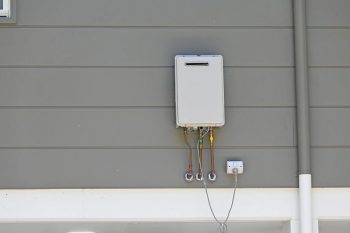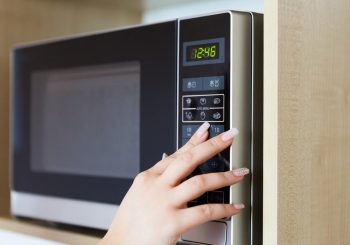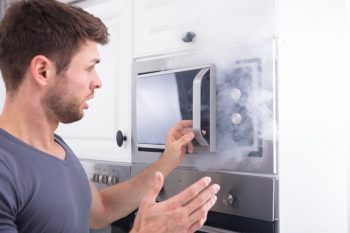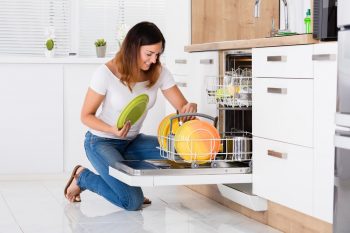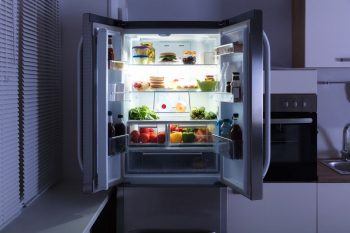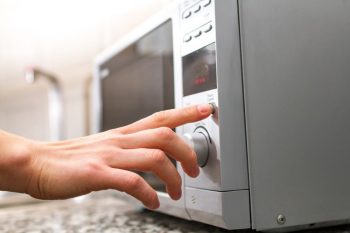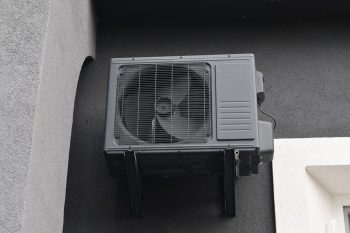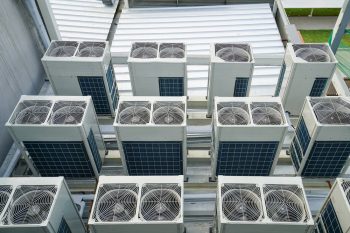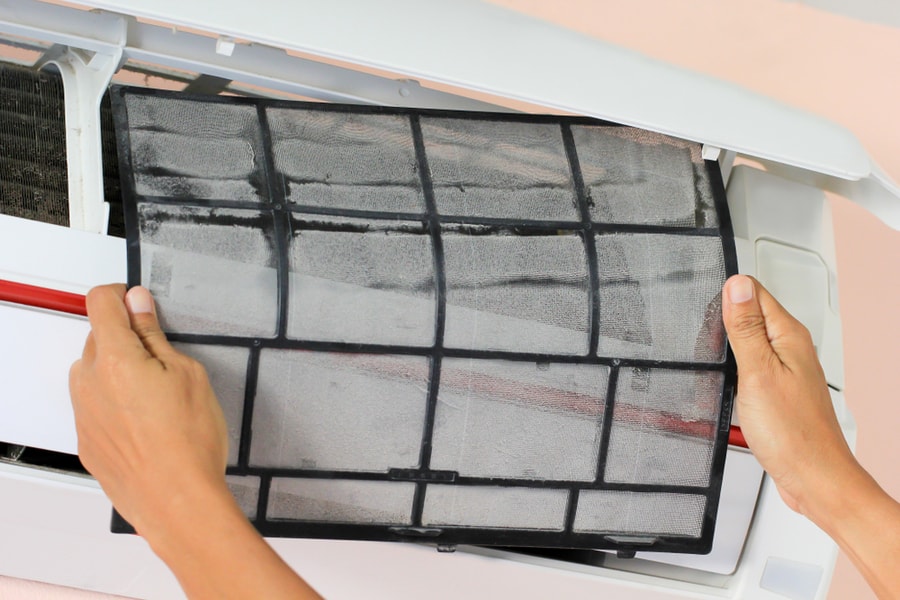
If you’ve noticed that your air conditioning air filter is getting clogged with dirt and dust more quickly than usual, you’re not alone.
A dirty filter can cause your AC system to work harder and less efficiently, leading to higher energy bills and more frequent maintenance needs.
But why is your AC filter getting dirty so fast in the first place? There are several reasons why this might be happening, from environmental factors to issues with your AC system itself.
So, whether you’re looking for ways to improve your AC filter’s performance or figure out why it’s getting dirty so quickly, this article will help you understand better.
Here are a few key takeaways from this article:
- A dirty air filter can lead to poor indoor air quality, increased energy bills, and potential damage to your AC system.
- The most common causes of dirty air filters include lack of maintenance, outdoor environment, poor air quality inside your home, setting the thermostat fan set to ‘ON’ instead of ‘AUTO,’ leaking air ducts, and using cheap filters.
- To combat these factors, homeowners can change filters more frequently, invest in high-quality filters, regularly clean and inspect their AC system, improve indoor air quality by using natural cleaning products, avoid smoking indoors, properly ventilate their homes, and seal ductwork.
- It is crucial to select the appropriate air filter for your home and lifestyle to achieve efficient filtration and extend the longevity of your AC system. This involves considering factors such as the MERV rating, which can greatly impact the filter’s effectiveness.
- By following best practices for indoor air quality and replacing the air filter every three months, you can avoid the issues caused by a dirty air filter and enjoy a healthier and more comfortable home.
Keeping your AC system running smoothly requires regular maintenance, and one crucial component is keeping the air filter clean. However, if your AC filter gets dirty much faster than usual, underlying issues may need to be addressed.
In this guide, we will explore six common reasons why your AC filter is getting dirty so fast and provide tips on how to prevent these issues from occurring.
Why Your AC Filter Gets Dirty So Quickly
Here are some of the top reasons why your AC filter might be filling up with dirt more quickly than usual:
1. Environmental Factors

Environmental factors are among the most common reasons for a dirty AC filter. For example, if you live in an area with dust or pollen, your filter will quickly get dirty.
Similarly, pet hair and dander can contribute to a dirty filter if you have pets.
To combat these factors, consider changing your filter more frequently or invest in a high-quality filter designed to trap dust and other pollutants more efficiently.
2. Lack of Regular Maintenance
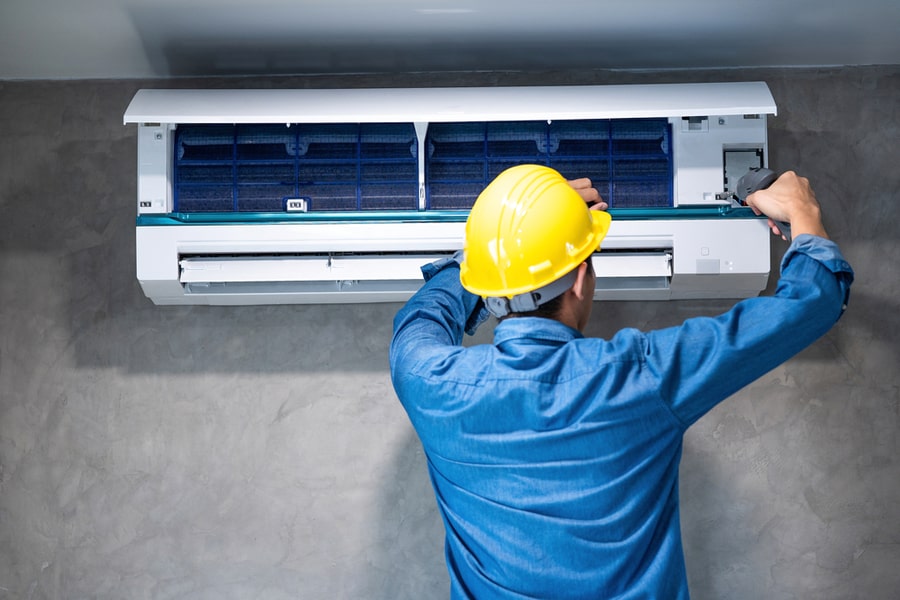
Another common reason for a dirty AC filter is a lack of regular maintenance. If you’re not regularly cleaning and inspecting your AC system, you’ll likely have problems with a dirty filter.
To avoid this problem, clean and inspect your system regularly. It’s also crucial to replace your air filter every 2-3 months, depending on your usage and environment.
Get your AC system inspected by an HVAC professional at least once a year to ensure proper functioning.
3. Poor Air Quality Inside Your Home
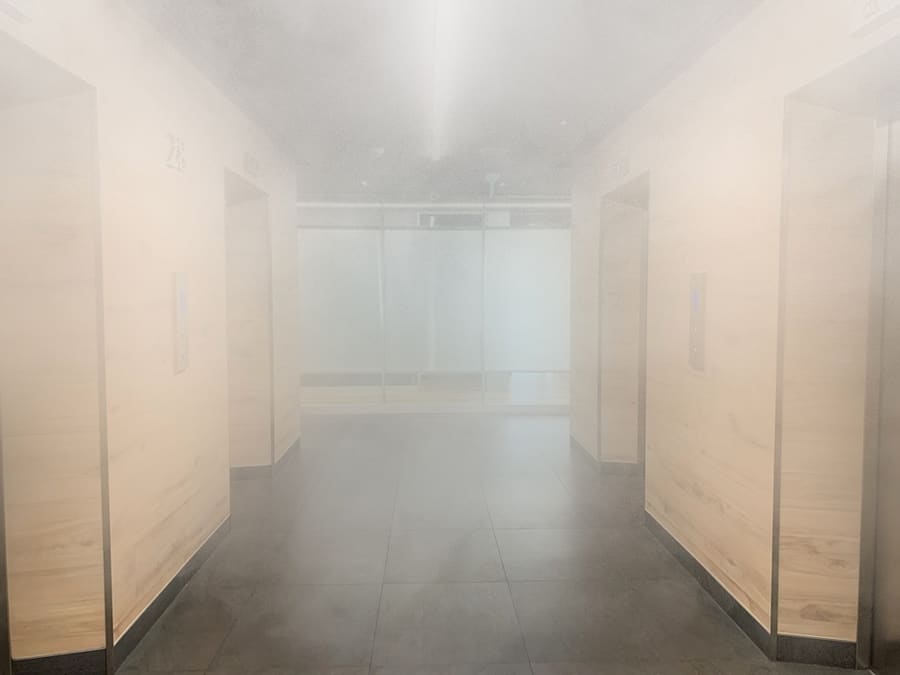
Poor air quality inside your home can also contribute to a dirty AC filter. There are several sources of indoor air pollution, such as household cleaners, tobacco smoke, cooking fumes, and pet dander.
Also, poorly ventilated homes can accumulate high levels of pollutants, circling through your AC system and clogging up your filter.
To improve indoor air quality, consider using natural cleaning products and avoid smoking indoors. Proper ventilation is also crucial to reduce pollutants in the air.
You can increase ventilation by opening windows and doors and using exhaust fans in the kitchen and bathroom. You can also consider investing in a whole-house ventilation system.
4. Thermostat Fan Is Set to “On”
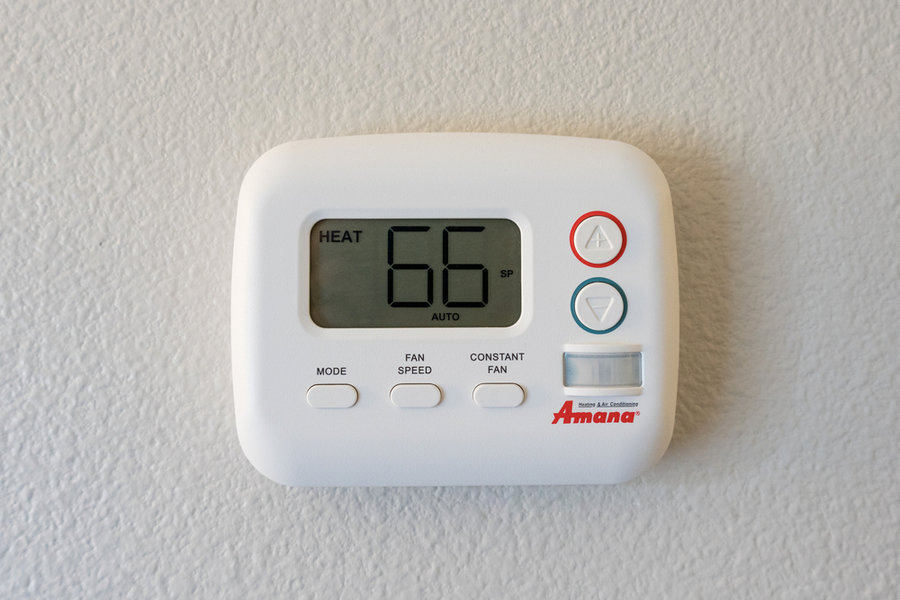
Setting your thermostat fan to ‘ON’ instead of ‘AUTO’ can also cause your AC filter to become dirty quickly.
This is because when the fan runs continuously, even when the AC is not cooling your home, more air flows through the filter and picks up dust and other particles.
To prevent this, set your thermostat fan to ‘AUTO’ so it only runs when your AC is actively cooling your home. This will reduce the air flowing through your filter and keep it clean for longer.
Consult the user manual or seek assistance from an HVAC technician if you are unsure how to change your thermostat fan settings.
5. Leaking Air Ducts
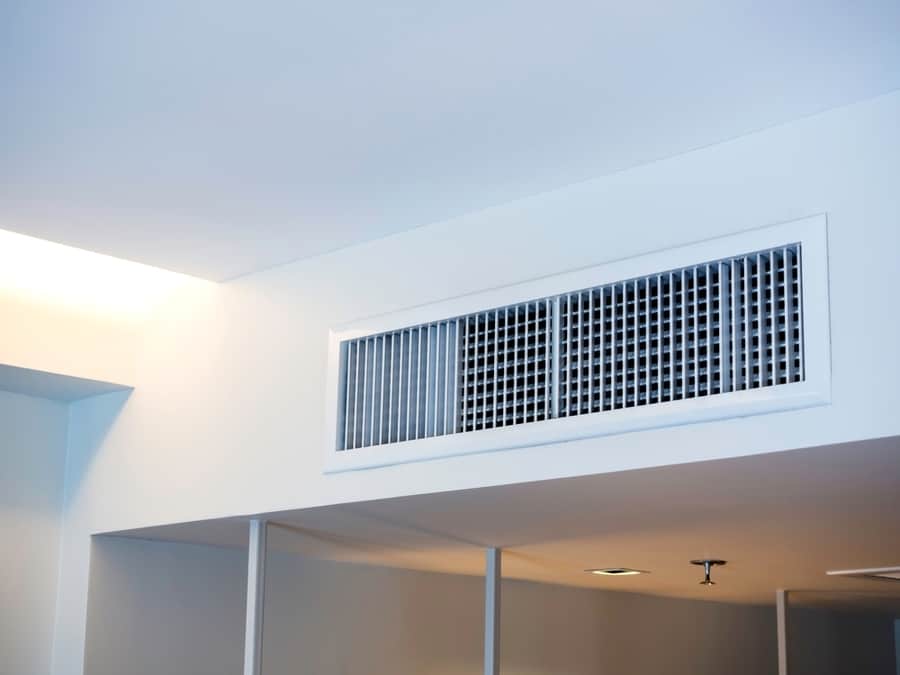
Leaking air ducts can also cause your AC filter to get dirty quickly.
If your air ducts are leaking, they can pull in air from unconditioned spaces, such as your attic or crawlspace, which contain a lot of dirt and debris. This dirty air circulates through your home, leading to a dirty filter.
Additionally, leaking air ducts can cause your AC system to work harder than it needs to, leading to increased energy bills and a shorter lifespan of your system. To address this issue, have a professional HVAC technician inspect your ductwork for leaks and seal any gaps or cracks.
Properly sealing your ducts will help maintain a clean AC filter and ensure your home remains comfortable and cool.
6. Cheap Air Filters
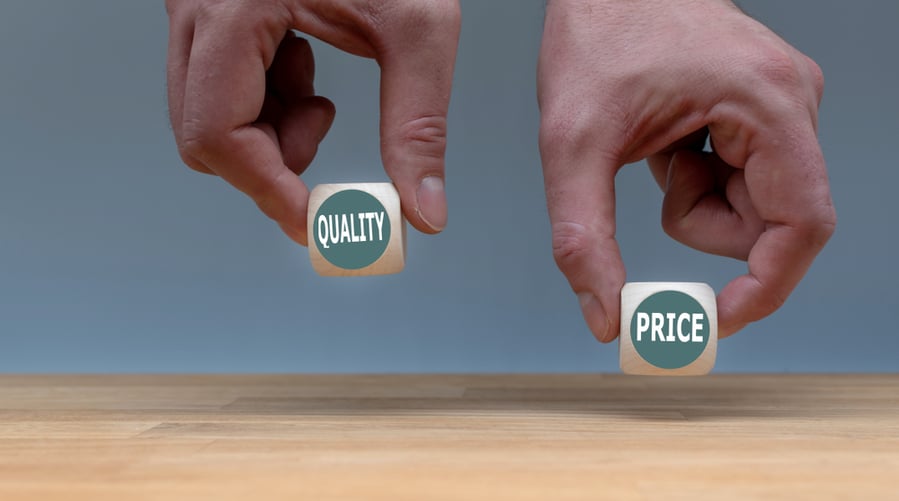
Using cheap air filters can also be a reason why your AC filter gets dirty quickly.
Cheaper filters are often made with lower-quality materials, making them less effective at trapping dust and other particles. As a result, they quickly get clogged, reducing the efficiency of your AC system and leading to higher energy bills.
Consider using high-quality air filters with a higher MERV rating to avoid this issue.
While high-quality filters may cost more upfront, they can save you money in the long run by reducing the frequency at which you need to replace them and helping to keep your AC system running efficiently.
How To Choose the Right AC Filter for Your Home?
Choosing the right air filter for your home can make a big difference in the quality of the air you breathe and the efficiency of your AC system. However, with so many options available, deciding which is best for you can be overwhelming.
Here are a few tips to help you make the best choice:
1. Check Your System’s Specifications
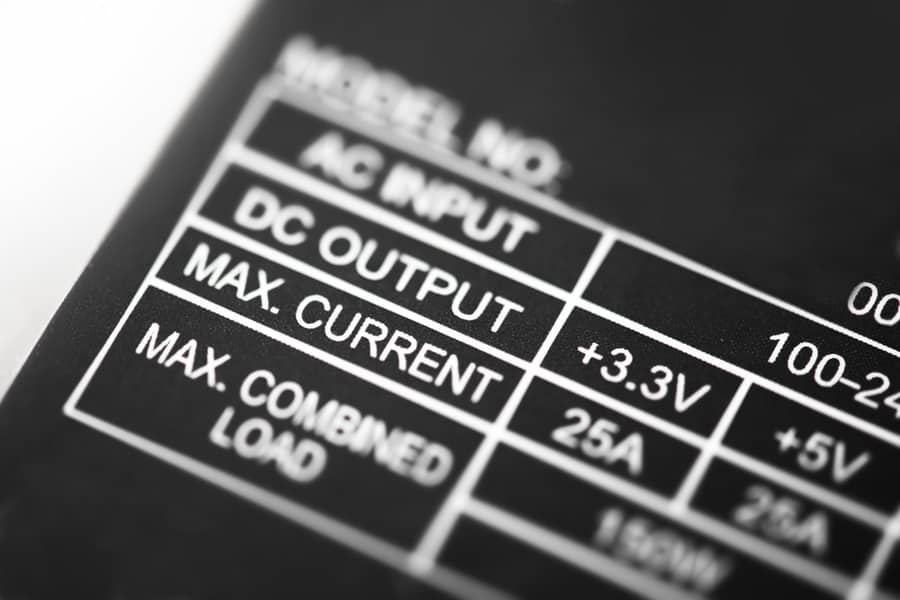
Before buying an air filter, check your system’s specifications to ensure compatibility.
If your system requires a specific size filter, buy one that matches the dimensions. Choosing a filter that’s too small or large can restrict the airflow, leading to potential Problems.
Additionally, most AC systems have a MERV rating, indicating the size of particles the AC can trap. When selecting the air filter, choose one with a MERV rating that matches or exceeds what’s recommended for your system.
MERV stands for Minimum Efficiency Reporting Value, a scale used to rate the effectiveness of air filters. The higher the MERV rating, the better the filter captures smaller particles.
Consider choosing a filter with a MERV rating of at least 8 to balance effectiveness and cost.
2. Consider Your Home’s Needs

When choosing an air filter, consider the specific needs of your home. For instance, if you have pets, you may opt for a filter with a higher MERV rating that can trap pet dander.
Regardless of your home needs, consider using a high-quality air filter that can help keep your AC system running efficiently and your home’s air clean.
If someone in your family suffers from allergies or asthma, consider using a filter with a higher MERV rating (11 or 13).
3. Decide on the Filter Material
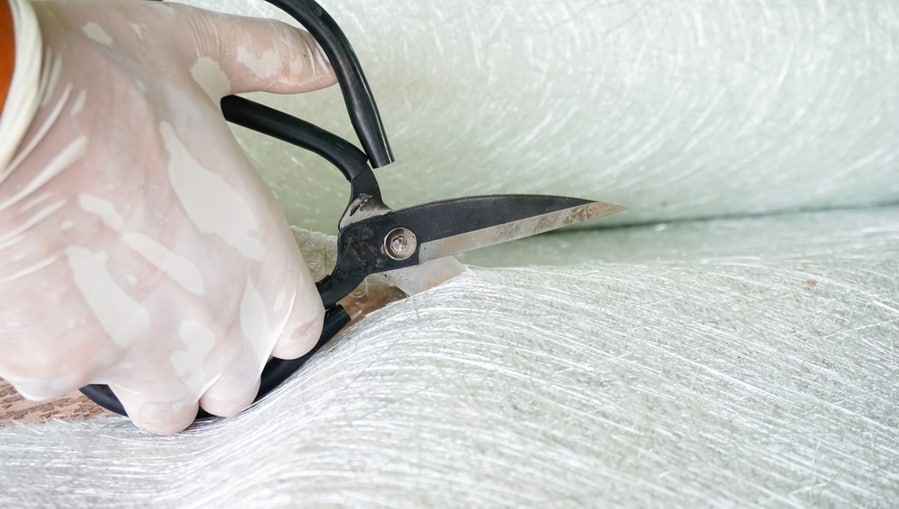
There are several types of material, including fiberglass, pleated, and electrostatic.
Fiberglass filters are the least expensive but also the least effective. Pleated filters are a good choice for most homeowners, while electrostatic filters are more effective at capturing smaller particles but can be expensive.
Additionally, consider whether you want a disposable or washable filter, as washable filters can be reused but require regular cleaning.
4. Consider the Maintenance Requirements
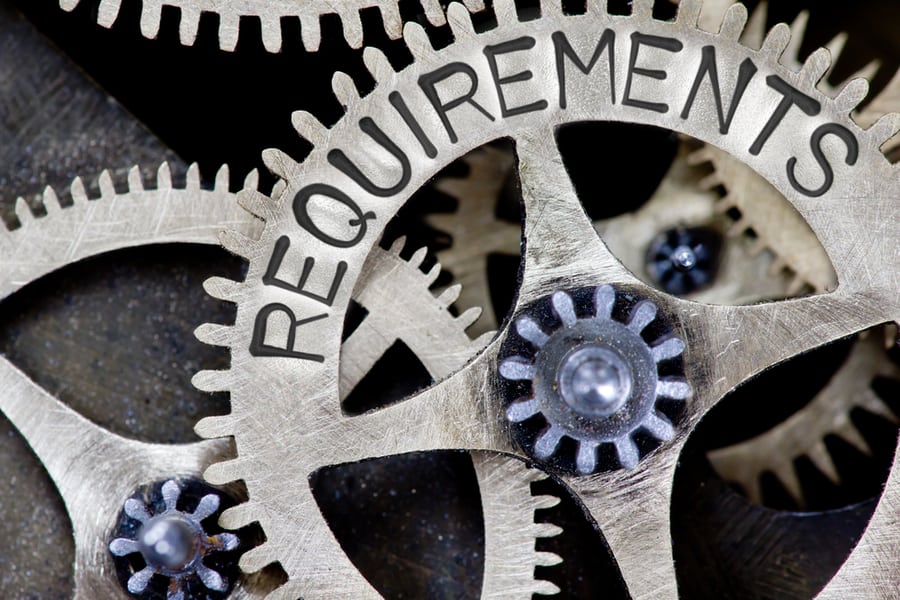
Some filters require more frequent replacement than others. Ensure you understand the manufacturer’s recommended replacement schedule and choose a filter that fits your budget and lifestyle.
By following these tips, you can choose an air filter that meets your family’s needs, fits your AC system, and helps to keep your home’s air clean and healthy.
Don’t forget to change your filter regularly, typically every three months, to ensure that it continues to work effectively.
Problems Associated With a Dirty AC Filter
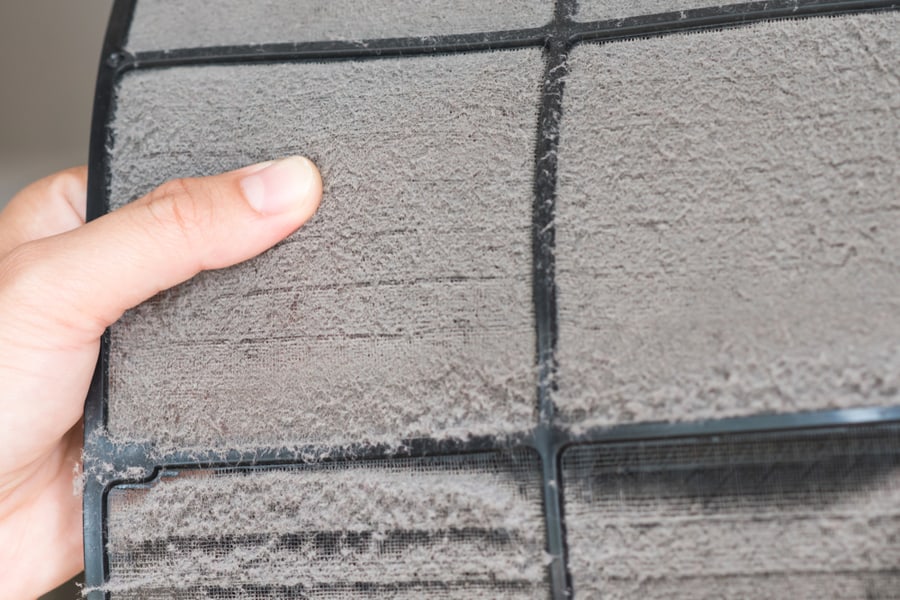
When you have dirty air filters, it can cause several issues.
Here are some of the most common issues that can arise:
- Poor Indoor Air Quality: A dirty air filter cannot effectively trap airborne particles like dust, pollen, and pet dander, which can circulate through your home’s air. This can lead to poor indoor air quality, worsening allergies, and respiratory problems.
- Reduced Airflow: As an air filter becomes clogged with dirt and debris, it can restrict airflow through your AC system. This can cause your system to work harder to circulate air, leading to higher energy bills and damage to the system.
- System Breakdowns: When an air filter is severely clogged by dirt, it can cause your AC system to overheat, leading to potential breakdowns and costly repairs.
- Shortened Lifespan of your AC System: When your AC system has to work harder to circulate air due to dirty air filters, it can cause increased wear and tear on the system’s components. This can lead to a shortened lifespan for your system and the need for premature replacement.
- Fire Hazard: In extreme cases, a clogged air filter can become a fire hazard. When the filter becomes clogged with dirt and debris, it can overheat the system and potentially catch fire.
To avoid these issues, it is important to regularly change your air filters, depending on factors such as the type of filter and the level of air pollution in your home.
Conclusion
A dirty AC filter is a small but significant issue that can have major consequences for your home’s air quality, energy bills, and the AC system’s lifespan.
By understanding the common causes and taking steps to address them, you can help keep your AC filter clean for longer periods and enjoy healthier indoor air.
Remember to regularly inspect your air filter, address any underlying issues with your AC system, and follow best practices for maintaining good air quality.
Additionally, choosing the right air filter for your home and lifestyle can go a long way in keeping your air clean and free from harmful bacteria.
By taking these simple steps, you can avoid the issues caused by dirty air filters, ensure that your AC system runs efficiently, and enjoy a more comfortable and healthier home.
Frequently Asked Questions
Can a Dirty Air Filter Cause My AC To Stop Cooling?
Yes, a dirty air filter can cause your AC to stop cooling as it restricts the airflow, leading to the system freezing up or overheating.
What Are the Signs That Indicate I Need To Change My Filter?
Some signs that indicate you need to change your AC filter include reduced airflow from the vents, increased dust and debris around the vents or in your home, and higher energy bills.
Another way to determine if your filter is dirty is to do the ‘white sheet test,’ which involves hanging a clean white sheet near a vent and checking if it turns gray.
If you notice any of these signs, checking and changing your air filter is recommended.
Is It OK To Clean the Air Filter by Washing It?
It depends on the type of air filter. Some air filters are designed to be washable and can be cleaned with water and mild soap.
However, not all air filters are washable. An attempt to clean a non-washable filter can damage it and reduce effectiveness.
It’s important to check the manufacturer’s instructions to determine whether your air filter is washable and to follow the recommended cleaning procedures carefully.

